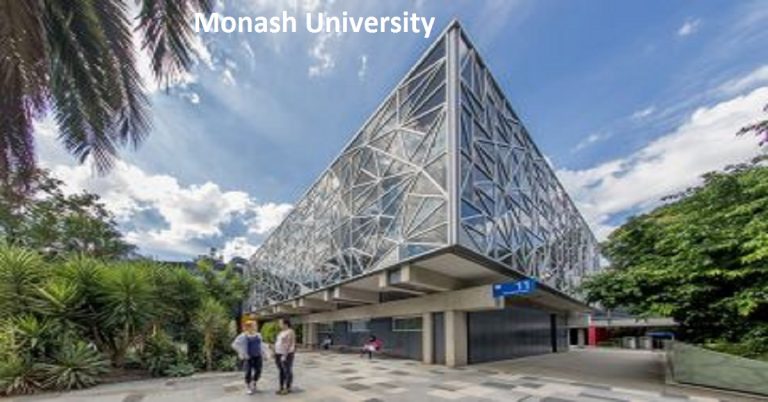The Max Planck Institute for Biogeochemistry (MPI-BGC) in Jena is dedicated to interdisciplinary fundamental research in the field of Earth system sciences with a focus on climate and ecosystems. The internationally renowned institute, which currently employs around 250 people, celebrated its 25th anniversary in 2022. Jena is known for high-tech industry, internationally renowned research institutions and a modern university, but it also has a beautiful natural setting in the green Saale valley with steep limestone slopes. The city of Jena has an active student scene and a diverse cultural life. We are looking for the department Biogeochemical Integration an Postdoctoral researcher (m/f/d)in the field of empirical modelling of biogenic terrestrial carbon fluxes (full-time), initially limited until 30th November 2026.
Background and position description
We are looking for an enthusiastic scientist to complement our team efforts in tackling current research questions in the field of data-driven estimates of European and global land ecosystem-atmosphere fluxes.
The Global Diagnostic Modelling group coordinates the FLUXCOM initiative (www.fluxcom.org, Jung et al. 2020) which develops approaches to integrate satellite remote sensing data, eddy-covariance flux observations, and machine learning to generate global products of land-atmosphere carbon and energy fluxes. FLUXCOM is developed by a diverse team with backgrounds in ecophysiology, data science, machine learning, and remote sensing. We are looking for applicants with an interest in ecosystem processes, in the dynamics of terrestrial fluxes, and in the understanding of uncertainties associated with model estimates to join us in the FLUXCOM team.
One focus of the work will be the extension of our methodology to characterize uncertainty and error of the flux products, and to improve our workflows towards efficient and automated data pipelines. A key outcome is the generation of an ensemble of flux products that encompasses different methodological choices such as the set of predictor variables, the machine-learning method, or the amount, and quality of training data. The resulting uncertainty information is of prime interest to many applications of the flux products. The work will be directly relevant for interdisciplinary collaborations in the ITMS project where FLUXCOM output of net ecosystem exchange serves as prior estimate in atmospheric inversions.
Our new colleague will also have ample space to complement the research activities of the FLUXCOM team by developing and realizing own research ideas. These may focus on more technical or applied questions according to the applicants interests. Next to the FLUXCOM team, there will be many opportunities for collaboration and exchange within the department of Biogeochemical Integration, and with external national and international colleagues. The candidate is encouraged to author and/or contribute to scientific publications of the group.
Your tasks
- generation and post-processing of FLUXCOM output both at the site level and on the global scale in order to assess, understand, and quantify statistics of error and uncertainty
- improve the level of automatization of data pipelines from data source to prediction of land surface fluxes with the aim of characterizing error structures in an operational manner
- develop, implement, test own research topics in the field of diagnosing biogenic land-atmosphere exchange
- produce and/or contribute to scientific publications of the group
Your profile
- Completed a PhD in one of the following or a related field: remote sensing, geoinformatics, computer science, physics, meteorology, geoecology
- Experience with the programming language Python is advantageous given that the new implementation of FLUXCOM (‘FLUXCOM-X’) is based on Python
- Additionally, being familiar with technology currently used by the FLUXCOM team would be advantageous: HPC computing, docker containers, GIT version control, zarr data cubes, as well as a good understanding of the terrestrial carbon cycle, ecosystem-climate interactions, eddy covariance ecosystem flux measurements, and machine learning
- Very good written and spoken English is required
Our offer
This position is full-time and is to be filled as soon as possible. Part-time work is generally possible. The position will be evaluated and graded following the collective agreement according to TVöD Bund; in addition, we will provide a pension plan based on the public service (VBL). The Max Planck Society (MPS) strives for gender equality and diversity. The MPS aims to increase the proportion of women in areas where they are underrepresented. Women are therefore explicitly encouraged to apply. We welcome applications from all fields. The Max Planck Society has set itself the goal of employing more severely disabled people. Applications from severely disabled persons are expressly encouraged.
Your application
Dr. Martin Jung (mjung@bgc-jena.mpg.de) will be happy to answer further questions. Are you interested? Please send us your application with cover letter, curriculum vitae as well a s names and contact information of two references summarised in a PDF file (max. 10 MB) by November 22, 2023, quoting the reference number 21/2023 by e-mail to bewerbung@bgc-jena.mpg.de or to the
Max-Planck-Institut für Biogeochemie
Personalbüro: Kennwort “PostDoc”
Hans-Knöll-Straße 10
07745 Jena
Germany
We ask that you do not use application folders, but only submit copies, as your documents will be destroyed in accordance with data protection regulations after the application process has been completed. We look forward to receiving your application!



